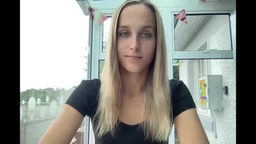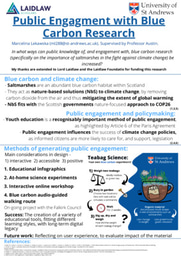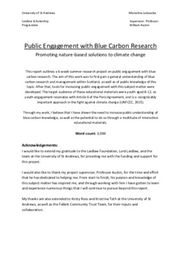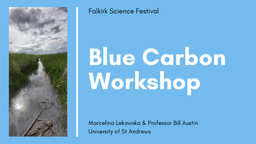In this reflection I will be exploring my time as a Laidlaw Scholar, reflecting on who I was when initially applying for the scholarship and highlighting all the ways that I have grown as both a leader and a learner throughout my time on the programme. I will then think towards what I would like to carry on from this learning to my life beyond university. In beginning this work, I would like to first and foremost thank Lord Laidlaw and the Laidlaw Foundation for providing me with this opportunity to improve my research and leadership abilities. My thanks also extend to the Laidlaw team at the University of St Andrews, my research project supervisor Professor Bill Austin, and the Women’s Rights Initiative (WORI), with whom I completed my Leadership in Action (LiA) project. This scholarship has been a lifechanging experience that I am incredibly grateful for.
I first heard about the Laidlaw Scholarship through a weekly email from the Careers Centre and decided to go to an online introductory talk about it to learn more. I remember feeling overwhelmed and incredibly unqualified to apply hearing past scholars describe their incredible research projects. At this stage I did not feel like I was experienced enough to undertake research. I decided to apply for the scholarship upon hearing one of the past scholars describe her experience with also feeling very unconfident when applying but suggesting to applying regardless of such feelings as there is no harm in trying. Looking back, it is clear to me that I lacked many of the Laidlaw Leadership Attributes. I was not confident in my leadership ability, just beginning to take on my first leadership roles in university societies at this time. I additionally had little self-knowledge and awareness of my abilities, and specifically had a bad tendency to undermine my accomplishments. Lastly, I feared teamwork, believing that working alone was the best away to be efficient.
Going through with applying for the scholarship is the first moment where I identify beginning to improve on my leadership abilities. I chose to do a self-defined project and stepped far out of my comfort zone contacting a lecturer who I had never spoken with before and asking if he would be interested in becoming my supervisor. Upon meeting with him, we began designing a research project on the importance of public engagement to promote blue carbon ecosystem conservation. It was at this stage that I developed resilience and determination to follow through with applying for the program. I felt this way as I had identified a subject matter that I was confident was genuinely in need of further research and I developed confidence in myself, believing that I could produce a valuable outcome.
The next stage of my Laidlaw journey that I identify as being critically important for my leadership development is completing the DiSC Workplace Profile for the first Laidlaw leadership session. This profile showed me that the leadership style I take on. I can be described as analytical, precise, private, reserved, and systematic. Discussing this profile at the leadership session allowed me to further understand the strengths and weaknesses within my leadership approach. For example, I am responsible and good at
staying on task. However, this can also mean that I find working under pressure stressful and that I can be overly critical of myself and others. This element of the Laidlaw scholarship allowed me to improve my leadership abilities, as well as my self-knowledge and awareness. I learnt what characteristics I bring forward in my leadership, as well as the fact that there exist different styles of leadership, all with different strengths and weaknesses. This broadened my perspective of leadership, as previously I had a very one-dimensional understanding of leaders being primarily extroverts with very dominating personalities. In terms of developing my self-knowledge and awareness, I was able to see what weaknesses I tend to have within leadership, critically evaluate them and begin thinking of strategies to overcome them. For example, within current leadership roles I check-in that my team members are not feeling too stressed and give them positive verbal feedback on well accomplished tasks.
Further Laidlaw weekends have helped me develop my collaboration and team working skills and have taught me that good leadership comes with teamwork. As part of one of the Leadership weekends, I completed a Belbin Test, an assessment that shows which out of nine team roles you have the greatest tendency to fulfil within a group setting. The roles that I had the greatest tendency to fulfil were very fitting with the outcomes of the DiSC profile, being things such as ‘Implementor, Co-Ordinator and Completer Finisher’. We proceeded to have a group discussion of the different traits needed for an effective team to function, as well as completing various teamwork activities during another leadership weekend, such as orienteering and complex problem-solving. Putting all these experiences together, I learnt the value of having a diverse team. Diversity creates an effective team as factors such as personal experiences, interests and personality traits lead to different people forming different opinions and adding different suggestions to a project. This strengthens a project as it ensures it has been approached from multiple perspectives. Through the teamwork development training provided by the Laidlaw programme I greatly improved in my ability to work collaboratively and now understand the benefits that building networks can bring. I also learnt that a team does not necessarily require one leader, each member of a team can act as a leader in their own way.
Another key aspect of my leadership development occurred during the research portion of the programme. It was very important to me for the output of my research project to become an accessible educational tool. I felt strongly about creating this output as I did not feel that it was right for a research project about the importance of public engagement with conservation research to not end with an output involving actual public engagement. This drove me to collaborate with the Falkirk Council to design a ‘STEM Box’ – a series of workshops and activities through which students can learn about blue carbon conservation in their classrooms. This material is available at: https://blogs.glowscotland.org.uk/fa/LearningResourceService/blue-carbon-in-falkirk-stem-box/. Achieving this output required many of the leadership skills that had been
introduced during the leadership weekends. It took resilience and determination to work on this project, as it was a long-term commitment balanced alongside my university work. It took learning to effectively communicate to new audiences, those being secondary school teachers. It also took collaborating with the Falkirk Council, requiring me to work in an unfamiliar environment with people not associated with my university or the Laidlaw programme. The confidence in my own abilities and the leadership and collaboration skills I had gained through Laidlaw is what allowed me to successfully complete this task and, in the process, build connections I would have never otherwise made.
The final stage of my leadership development so far has come through my LiA project this past summer. I reflect on this experience as a challenging yet incredibly rewarding time throughout which I utilized all the leadership training I had been building up. I chose to pursue an independent LiA project as I wanted to have an experience throughout which I fully immersed myself in a new cultural and working environment. I felt that if I were in a central LiA with a large group of other scholars of my age, from predominantly similar University settings, I would not truly step out of my comfort zone and have that immersive experience. I decided to take on an LiA project with WORI, a feminist NGO located in Jinja, Uganda, working to end domestic violence and to empower women through skilling and educational programmes. In all honesty, I found the first two weeks of my LiA to be incredibly difficult. I was facing challenges that I had not anticipated. For example, in the area where I was staying it was challenging to walk around alone as a woman. Without fail, every single time that I left the house I was taunted by men on the roads. Beyond being uncomfortable there were instances where I felt genuinely unsafe, once being followed down a road by a man and at multiple times being asked to get into strangers’ cars. I felt unable to navigate this new setting. Although difficult, I am glad to have had this experience. It showed me the realities of life for many women in Uganda, helping me see the importance of the work of WORI. Additionally, I think learning to deal with unexpected and difficult situations is an important leadership quality.
The next way in which I developed as a leader during my LiA is through the project implementation. I began my LiA working for the Menstrual Health and Hygiene Education department. Through this role, I delivered educational sessions about menstrual health to secondary school students and interviewed schoolgirls about their experiences with menstruation. Although I had previous experience developing and delivering education material, I now had to apply those skills into a new educational and cultural context. Working in collaboration with employees of WORI, as well as teachers at the schools, allowed me to build partnerships and to develop outputs which all the stakeholders involved were happy with. I further developed as a leader during my LiA as myself and another Laidlaw scholar noticed a lack of documentation of the Nyonga Women’s Shelter, one of the only shelters for victims of domestic violence within Uganda, operated by WORI. We developed a proposal for a project involving a series of interviews with survivors who had stayed at the shelter, as well as the social workers, lawyers and caretakers who work there. We then presented this proposal to our supervisor at WORI and together discussed the benefit that it could bring in terms of showcasing the importance of the shelter – information which could be useful for future grant applications, as well as for lobbying policymakers to improve work on domestic
violence. We then implemented this project, with my main roles involving conducting interviews and then writing up interviewee profiles, some of which have gone on to be published on the Ugandan NGO Forum. I believe that I greatly developed as a leader through this experience as I identified a need for a new project and then had the confidence to develop and implement it. This also required extensive teamwork and collaboration. The development of this project was by no means straightforward, we faced many challenges along the way, such as lacking professional recording devices to conduct the interviews. We had to work around such challenges, which required creativity and perseverance, important qualities of an effective leader faced with a challenge.
I hope that I have shown the many ways through which the Laidlaw Scholarship has allowed me to improve as a leader. It has allowed me to both learn and develop my leadership and teamwork, critically reflect on my strengths and weaknesses within this, and has also placed me in challenging situations which I have been able to navigate by applying the skills that I have developed. This development has translated into my life beyond the Laidlaw Scholarship. For example, last year I ran for the position of Environment Officer in the Student Council Elections. My success in being voted into this position, and indeed the very fact that I had the confidence to run in the first place, stems from the learning that I have been exposed to through my experiences as a Laidlaw Scholar. When I look towards my future after completing my BSc this following year, I hope to utilize the qualities that Laidlaw has instilled in me to pursue a career in environmental policymaking and management. I additionally plan to continue engaging with the Laidlaw Foundation as an alumnus, as it was hearing from past scholars that initially gave me the courage to apply for this lifechanging opportunity.




Please sign in
If you are a registered user on Laidlaw Scholars Network, please sign in